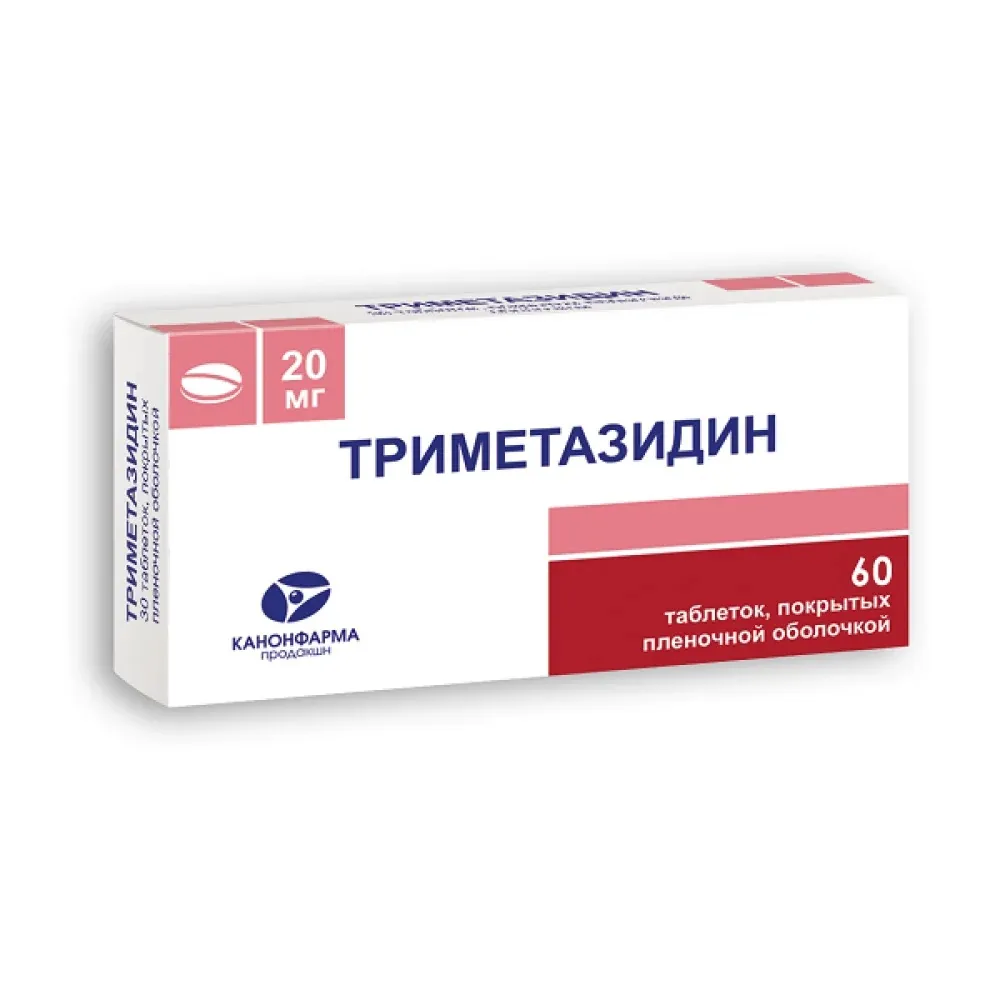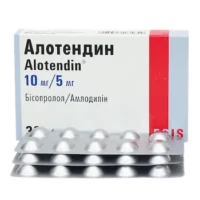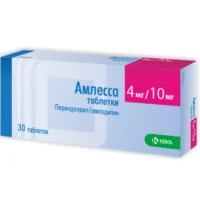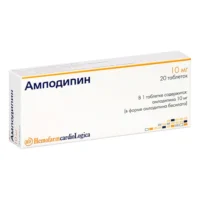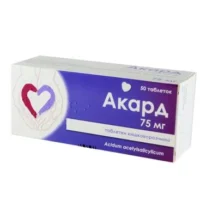Description
Trimetazidin (Trimetazidine) Coated Tablets 20 mg. №60
Ingredients
- Active ingredient: Trimetazidine 20 mg per tablet.
Dosage
- Recommended dosage: The usual dose is 20 mg three times a day.
Indications
- Indicated for: Symptomatic treatment of angina pectoris.
Contraindications
- Do not use if: Allergic to trimetazidine or any other ingredients in the product.
Directions
- Take one tablet three times a day with meals.
- Swallow the tablet whole with a glass of water.
Scientific Evidence
Pharmacological Effects: Trimetazidine acts by shifting myocardial metabolism from fatty acid oxidation to glucose oxidation, preserving energy production during ischemic episodes. This mechanism helps improve cardiac function and reduce ischemic damage.
Additional Information
- Trimetazidine has a favorable safety profile with minimal side effects.
- Regular monitoring may be necessary to assess the treatment’s effectiveness and adjust the dosage if needed.
- Clinical Trials: Clinical trials have shown that trimetazidine effectively reduces the frequency and severity of angina attacks, leading to improved exercise capacity and overall quality of life in patients with stable angina. Studies have also highlighted its role in preventing myocardial damage during ischemic events.

